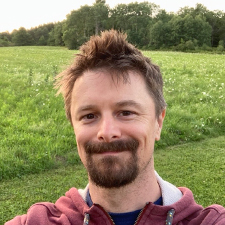Georgia Gosnell Seminar Series
The Georgia Gosnell Seminar Series showcases speakers with broad expertise across the life sciences who present ongoing research on topics that include ecological sustainability, education, evolution, genomics, pathogenesis, proteomics, and viral therapeutics.
Join us for our upcoming seminar!
Shigella in the 21st Century: New Perspectives for a Persistent Pathogen
Monday, March 2
1:00 - 1:50 PM
Gosnell A300
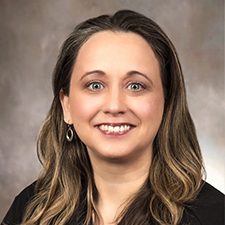
Christina Faherty, Ph.D.
Assistant Professor
Uniformed Services University of the Health Sciences
Shigella is a bacterial pathogen that causes millions of cases of infectious diarrhea and hundreds of thousands of deaths each year. Despite decades of research, a successful vaccine has not been developed and antibiotic resistance is rising at alarming rates. Shigella primarily infects humans, thus creating a significant hurdle to therapeutic development. Our lab employs human-specific conditions and organoid-based infection models to study how Shigella survives gastrointestinal transit, regulates virulence gene expression, and infects the colonic epithelium. This approach is creating new insights into Shigella pathogenesis that will improve therapeutic development against this formidable pathogen.
To request interpreting services, visit www.myAccess.rit.edu.
Seminar Schedule
Physiology and Pathogenesis of Chlamydia and ‘Chlamydia-related’ organisms
Monday, March 23
1:00 - 1:50 PM
Gosnell A300
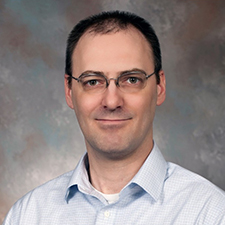
George Liechti, Ph.D.
Associate Professor of Microbiology
Uniformed Services University of the Health Sciences
The Chlamydiae is an ancient bacterial phylum consisting of obligate intracellular pathogens and endosymbionts that reside within a wide range of host species including protozoans, arthropods, and vertebrates. It has been estimated that these bacteria adapted to intracellular life almost a billion years ago, effectively pre-dating the emergence of adaptive immune systems utilized by all multicellular life on this planet. Dr. Liechti’s laboratory focuses on how the intracellular environment has shaped the physiology of these organisms and how evolutionary adaptations have influenced the interaction of these microbes with our innate and adaptive defenses. Utilizing a combination of genetic, biochemical, and high resolution imaging approaches, his research group seeks to establish the molecular mechanisms that enable these genetically-reduced microbes to thrive within our cells and avoid clearance by our humoral and cell-mediated immune responses.
To request interpreting services, visit www.myAccess.rit.edu.
Electron Microscopy: Powering Modern Biomedical Discovery
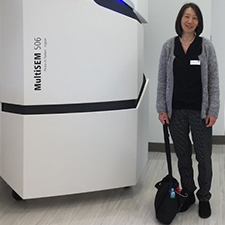
Ru-ching Hsia
Principle Scientist
NCI
Electron microscopy (EM) emerged in the 1930s and quickly became a transformative tool for biological research. Advances and new developments have dramatically extended the achievable resolution of modern electron microscopes, pushing imaging capabilities to the atomic scale and enabled researchers to study cells and tissues in their native, hydrated states. Today, EM is a critical tool in translational and biomedical research, contributing to areas such as drug and vaccine design, therapeutic development, disease diagnosis, and the elucidation of fundamental molecular mechanisms underlying cellular function. This presentation will highlight the diverse applications of modern EM techniques and instrumentation in contemporary biomedical research, illustrating how continued innovation in EM continues to expand our understanding of biology and medicine.
To request interpreting services, visit www.myAccess.rit.edu
Check back for more info!
Check back for more info!
Past Seminar Speakers
What Can Atmospheric Oxygen Tell Us About the Carbon Cycle and the Climate Crisis?
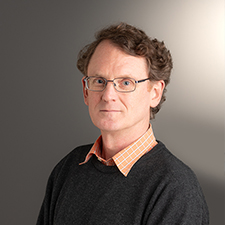
Andrew Manning
Visiting Professor
NTID Science and Mathematics Department
Chesapeake Bay’s “forgotten” Anacostia River: Eutrophication and nutrient reduction measures
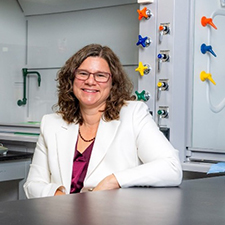
Caroline Solomon, Ph.D.
President, NTID
Vice President, RIT
Integrating automation, computer vision, and genomics for grape genetic improvement
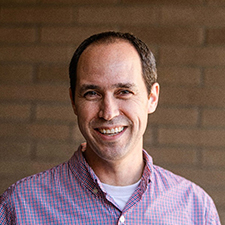
Lance Cadle-Davidson, Ph.D. Grapevine Pathologist
USDA-Agricultural Research Service and
Cornell AgriTech
Targeting NFκB May Overcome VSV Resistance in Prostate Cancer
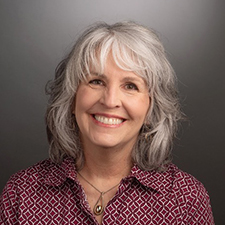
Maureen Ferran, Ph.D.
Professor
Thomas H. Gosnell School of Life Sciences
RIT
The art of making 100 heads: The known (and unknown) mechanisms of jumbo phage head assembly
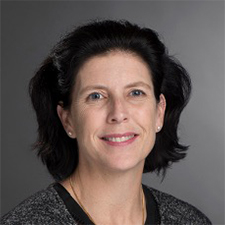
Julie Thomas, Ph.D.
Associate Professor
Thomas H. Gosnell School of Life Sciences
The POPSTAR project: an ancient evolutionary calculus for attention signaling retained in modern music
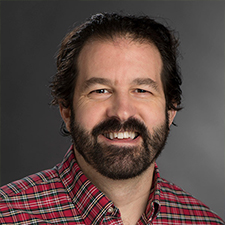
Greg Babbitt, Ph.D.
Associate Professor
Thomas H. Gosnell School of Life Sciences
Let’s move beyond the bars: How biology students interpret variability in graphs
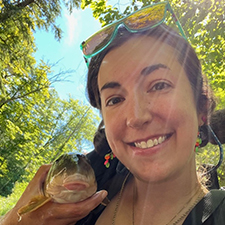
Lauren Stoczynski, Ph.D.
Assistant Professor
Biological and Environmental Sciences
LeMoyne College
Triggering toxicity: How antibiotics enhance the release of extracellular vesicles from Escherichia coli
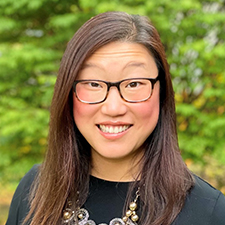
Lea Vacca Michel, Ph.D.
Professor
RIT School of Chemistry and Materials Science
Beyond the Lens: New Frontiers and Accelerating Diagnostics
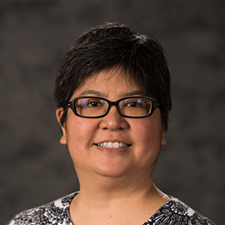
Julie Feldstein, MD
Chief Pathologist
Histowiz
Decoding Plant Defense Signals: Oxylipins in Maize and Beyond
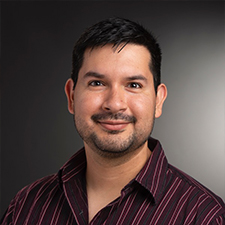
Eli Borrego, Ph.D.
Assistant Professor
T.H. Gosnell School of Life Sciences RIT
Microbial Messages, Human Lessons: What Archaea Teach Us About Communication
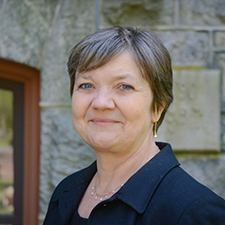
Mecky Pohlschroder, Ph.D.
Professor of Biology
University of Pennsylvania
Water to Wine - Climate Change Issues Facing Wineries in the Finger Lakes Region (NY) and Franconia, Germany
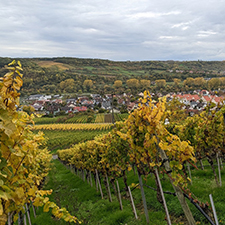
Karl Korfmacher, Ph.D.
Professor
RIT Thomas H. Gosnell School of Life Sciences
GSoLS Student Seminar: What I Did This Summer - Part 2
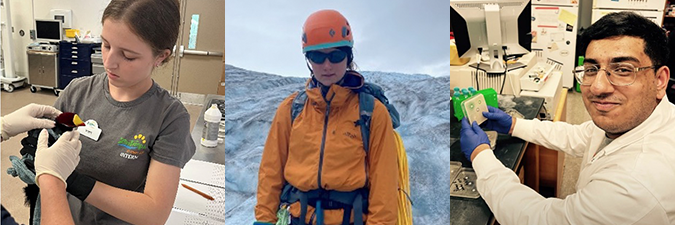
From left to right: Virginia Lawrence, Lorelei Robinson, and Pranav Bhagavatula
GSoLS Student Seminar: What I Did This Summer - Part 1
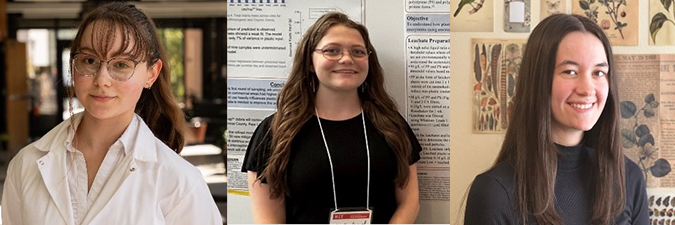
From left to right: Leah Robinson, Isabelle Leonard, and Maleah Sena
To be or not to be orange: Discovering carotenoid genes in crops
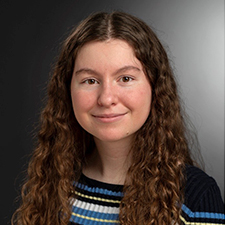
Emalee Wrightstone
(RIT Biotechnology '21)
Ph.D. Candidate
Plant Breeding and Genetics
Cornell University
GSoLS Student Seminar
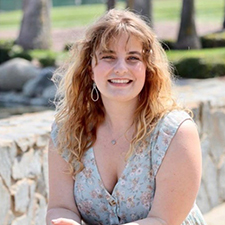
Katherine Palmatier ’26
Biotechnology and Molecular Bioscience
“Revisiting protein glycosylation in Pseudomonas aeruginosa reveals distinct phenotypes in motility and biofilm formation for different O-glycosylation pathway mutants”
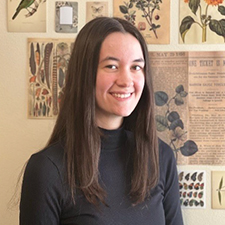
Maleah Sena ’26
Biotechnology and Molecular Bioscience Biochemistry
“Impact of Salt Stress on Growth and Astaxanthin Production in a Suite of Algae within the Scenedesmaceae”
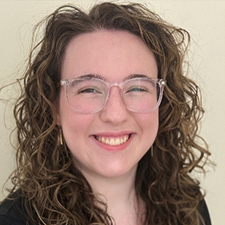
Caitlin Morrison ’26
Biotechnology and Molecular Bioscience
“Unraveling the diversity of biological soil crusts”
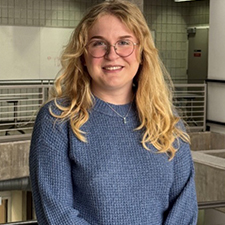
April Soule ‘25
Biology
“The Physiological Role of a Lake Ontario Stopover Site for Swainson’s Thrushes”
Leveraging students’ and instructors’ beliefs about students’ abilities to improve biology undergraduates’ outcomes
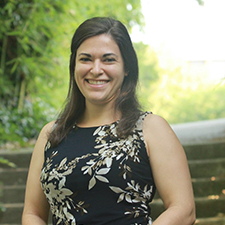
Lisa Limeri, Ph.D.
Assistant Professor
Texas Tech University
Bacteria host replicating RNA plasmids
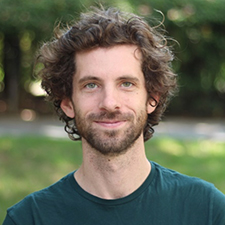
Andrew Varble, Ph.D.
(RIT Biotechnology '08)
Assistant Professor
Department of Microbiology and Immunology
University of Rochester School of Medicine
Enhancing VSV for Oncolytic Virus Therapy: A Transcriptomic Approach to Decipher Primed Resistance by Some Prostate Cancer
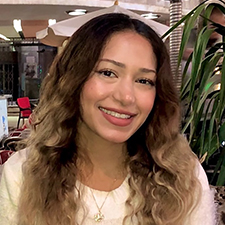
Alaa Abdelmageed Ahmed
(RIT Biotechnology '20)
Ph.D. Candidate
Genetics
University of Rochester
GSoLS Graduate Student Seminar
Impacts of permafrost thaw on methane cycling and emission in a Northern Peatland
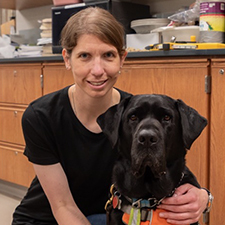
Hannah DeFelice
Environmental Science (BS '24, MS '25)
Green microbial communities, physiology, and stress response in retention ponds in the Lake Ontario watershed
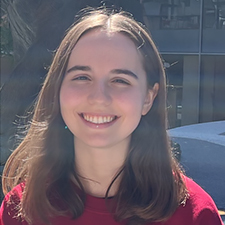
Francesca Molee
Environmental Science (BS '25, MS '26)
Bad to the Bone (Marrow): Macrophages in Leukemia

Benjamin Frisch, Ph.D.
Assistant Professor of Pathology
University of Rochester
School of Medicine and Dentistry
Partners in Crime: Hydrosphere-Pathobiome of Fusarium Wilt
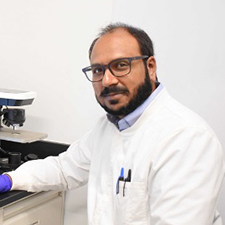
Sanjay Antony-Babu, Ph.D.
Assistant Professor
Texas A&M University
Bad Blood (feat. organ-on-chip): Recreating the bone marrow in the lab to study acute myeloid leukemia

Azmeer Sharipol ('17 biotechnology)
Ph.D. Candidate and NCI F99 Fellow
Biomedical Engineering
University of Rochester Medical Center
An adventure in molecular-scale bio-musicology
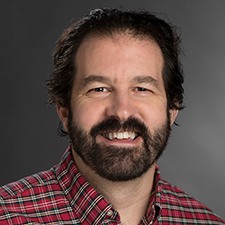
Greg Babbitt, Ph.D.
Associate Professor
Thomas H. Gosnell School of Life Sciences
Rochester Institute of Technology
Quality Control to Find Hidden Genomic Gems in Vitis
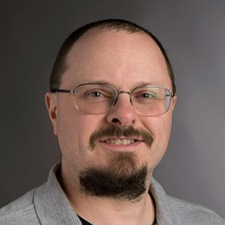
Michael Osier, Ph.D.
Associate Professor
Thomas H. Gosnell School of Life Sciences
RIT
Smash the Crash: An Interdisciplinary Initiative to Study and Prevent Bird-Window Collisions
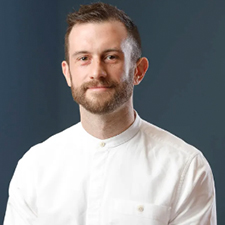
Richard Fadok, Ph.D.
Postdoctoral Fellow
Humanities Center
University of Rochester
Humanizing biology to promote equity in STEM education
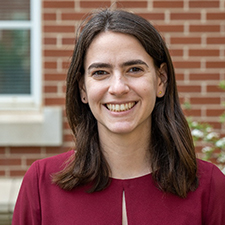
Robin Costello, Ph.D.
Assistant Professor
Department of Biological Sciences
University at Buffalo
Organismal plasticity in the colors and behaviors of an African cichlid fish
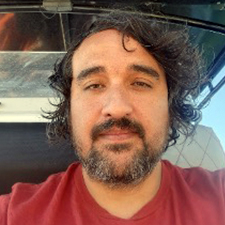
Sebastian Gaston Alvarado, Ph.D.
Assistant Professor
Queens College
City University of New York
Genetic Engineering Techniques to Study and Enhance Crop Plant Systemic Acquired Resistance
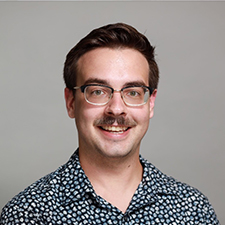
Benjamin Merritt
University of Florida
Parents, porches, and Pb policy: Cycles of engagement and research
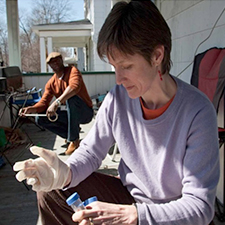
Katrina Korfmacher, Ph.D.
Professor of Environmental Medicine
Director of Community Engagement
Environmental Health Services Center
University of Rochester
Combining isotopic and molecular approaches to understand patterns of methane emissions across high latitude peatlands

Carrie McCalley, Ph.D.
Associate Professor
Thomas H. Gosnell School of Life Sciences
Rochester Institute of Technology
The Peculiar Lifestyle of an Important Opportunistic Fungal Pathogen
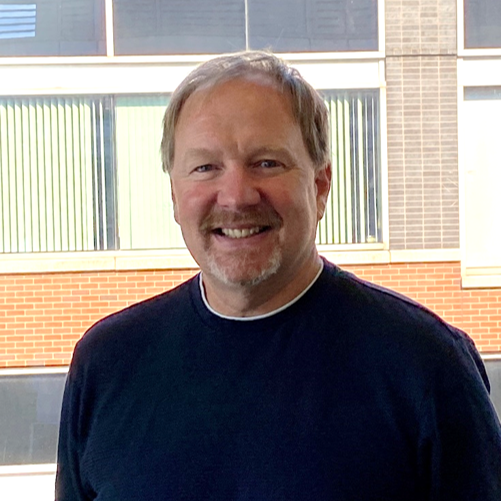
Terry Wright, Ph.D.
Pediatrics Infectious Disease and Microbiology and Immunology
University of Rochester Medical Center
Breaking the Silence: Interaction of Acinetobacter sp. RIT 592 induces the production of broad-spectrum antibiotics in Exiguobacterium sp. RIT 594
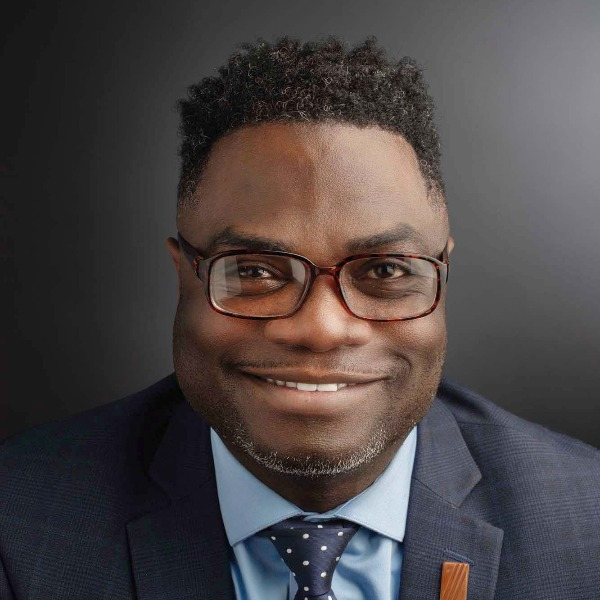
André Hudson, Ph.D.
Dean and Professor
College of Science
Rochester Institute of Technology
Microbiological predictive modeling for food safety risk assessment: State of the art and way forward

Nurul Hawa Ahmad '10, Ph.D.
Senior Lecturer
Food Science and Technology
Universiti Putra Malaysi
A bubbling cauldron of antibiotic resistance: Commensal Neisseria, a persistent threat for DNA donation to important human pathogens
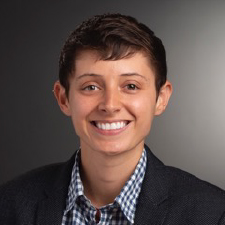
Crista Wadsworth, Ph.D.
Assistant Professor
Thomas H. Gosnell School of Life Sciences
RIT
Can I Borrow a Gene?

Fernando Rodriguez, Ph.D.
Research Scientist
Thomas H. Gosnell School of Life Sciences
RIT
Student Seminar: "What I did this summer" (Part 2)
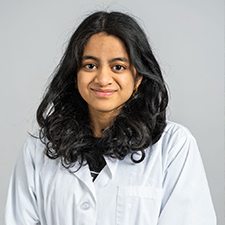
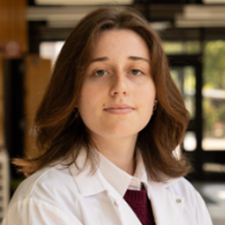
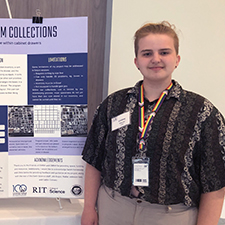
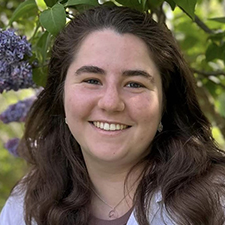
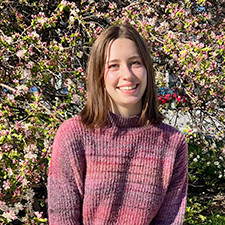
Student Seminar: "What I did this summer" (Part 1)
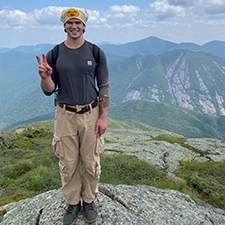
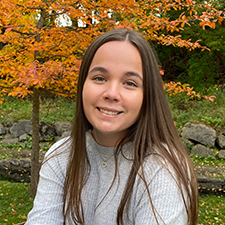
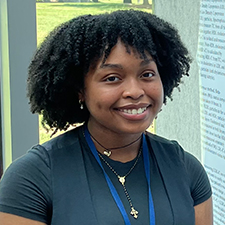
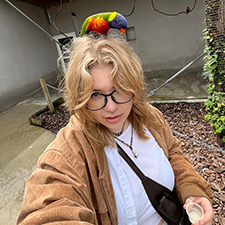
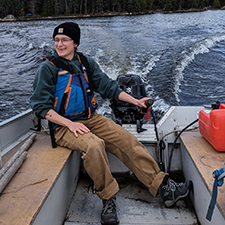
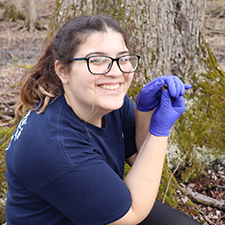
GSoLS Student Seminar
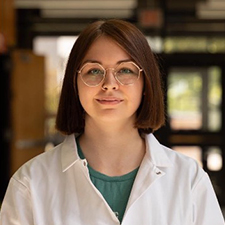
Skye Bixler ’24 BS / ’25 MS (biotechnology BS / bioinformatics MS)
“Understanding how the Vesicular Stomatitis Virus matrix protein blocks cellular translation using Comparative Molecular Dynamics”
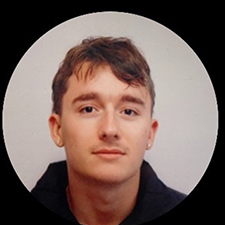
Zack Black '24 (biotechnology)
“NFkB is not solely regulated by the matrix protein in prostate cancer cells that resist VSV oncolysis”

Aneesh Nallani '24 (biology)
“Demystifying ATP Hydrolysis”
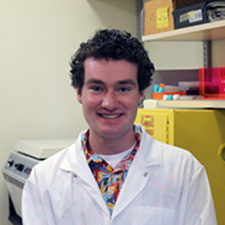
Jack Smerczyski '24 (biotechnology)
“NFkB is not solely regulated by the matrix protein in prostate cancer cells that resist VSV oncolysis”
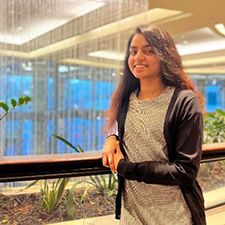
Shreya Sujith ’25 (biotechnology)
“Demystifying ATP Hydrolysis”
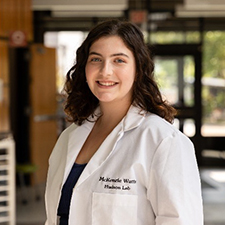
McKenzie Watts '25 (biotechnology)
“Biological characterization of novel tanzawaic acid bacterial conjugation inhibitors”
From Bench to Bedside: Developing a novel therapeutic against the deadly brain eating amoeba Balamuthia mandrillaris
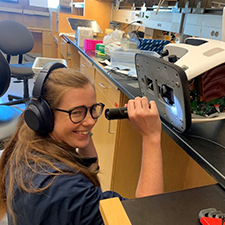
Kaitlin Marquis, Ph.D. '15 (biotechnology)
Scientist
Chan Zuckerberg Biohub Network
Unlocking the Genetic Repertoire of a Cultivated Megaphage
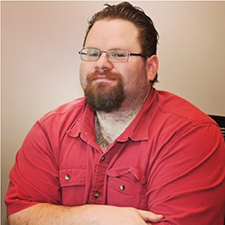
Richard Allen White III, Ph.D.
Assistant Professor
Bioinformatics and Genomics
University of North Carolina at Charlotte
T Cell Immunometabolism in Function and Disease
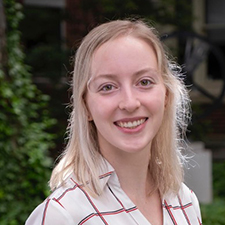
KayLee Steiner (Biotechnology ’20)
Ph.D. Candidate
Cancer Biology
Vanderbilt University
Living on the edge: Pollinating insects and plant communities along highways
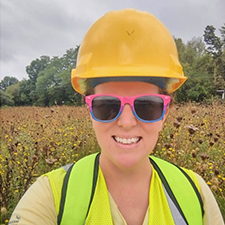
Kaitlin Stack Whitney, Ph.D.
Assistant Professor
Department of Science, Technology, & Society
Rochester Institute of Technology
Building Quantitative Skills in Biology Students
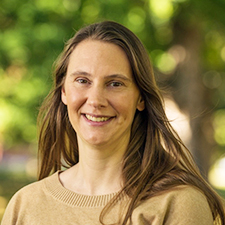
Melissa L. Aikens, Ph.D.
Associate Professor
Department of Biological Sciences
University of New Hampshire
Co-sponsored with the Center for Advancing Scholarship to Transform Learning (CASTLE).
Advanced Cryotechnologies for Conservation: Ethics and Justice Considerations

Evelyn Brister, Ph.D.
Professor of Philosophy
Rochester Institute of Technology
Coastal Wetlands in a Changing World: Impact on carbon sequestration and greenhouse gas release
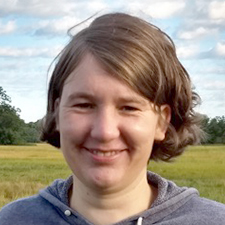
Inke Forbrich, Ph.D.
Assistant Professor
University of Toledo
Determining the socio-ecological impact of field station conservation initiatives
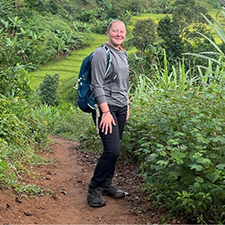
Sydney VanWinkle, M.S. (RIT '19 '21)
Fulbright U.S. Student Fellow
Madagascar Researcher
Biology Without Walls: Student Research Presentations

Microbial Assembly: Using ecology to deconstruct pandemics and build healthy amphibian microbiomes
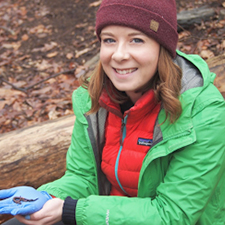
Dr. Elle Barnes
Assistant Professor
RIT Thomas H. Gosnell School of Life Sciences
New Strategies for Antibiotic Dosing in the Age of Multidrug-Resistance

Zackery P. Bulman, PharmD
Assistant Professor
University of Illinois Chicago
College of Pharmacy
The Green Diversity Under Our Feet: Secrets and Surprises of Green Microalgae
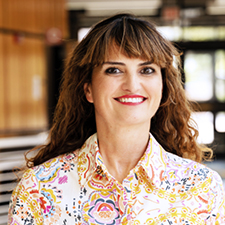
Dr. Elena L. Peredo
Assistant Professor
Thomas H. Gosnell School of Life Sciences
Understanding Learning Strategies and Metacognition in Genetics Students
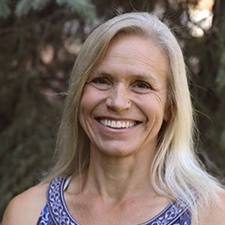
Dr. Jenny Knight
Associate Professor
Molecular, Cellular & Developmental Biology
University of Colorado Boulder
Understanding and Modulating Immune Responses to Adeno-associated virus (AAV) Gene Therapy
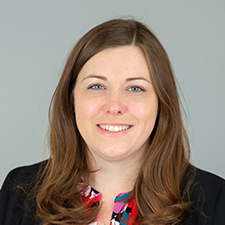
Dr. Allison Keeler-Klunk
Assistant Professor
Horae Gene Therapy Center
University of Massachusetts
Chan Medical School
ATOMDANCE: machine learning denoising and resonance analysis for functional and evolutionary comparisons of protein dynamics

Dr. Greg Babbit and Dr. Maureen Ferran
RIT Thomas H. Gosnell School of Life Sciences
GSoLS Student Seminars: What I did this Summer
Part 2
- Hannah DeFelice participated in an REU at the University of New Hampshire. As part of the program, Hannah traveled to norther Sweden to perform vegetation assessments and collect pore water samples in an area of permafrost transition/thaw. Her results showed considerable change in vegetation cover, pH, and methane concentrations between 2015 and 2023.
- Sydney Purcell conducted research at RIT in Dr. Ferran's viral genetics lab. She focused on using targeted molecular imaging agents to image breast cancer cells and infecting C. elegans with VSV to overexpress a specific gene. Zak Azad conducted research in Dr. Thomas' lab at RIT. The research project focused on optimizing parameters that impact phage growth and yield.
- Tori Russell was involved in several research projects in Dr. Ferran's lab at RIT, including a mechanobiology project, a breast cancer imaging project, and a C. elegans/VSV project.
- Maggie Muldoon participated in the RIT Wetlands REU, with her research project focusing on the impact of the Emerald Ash Borer on bird species and habitat in forested wetlands.
Part 1
- Natalie Siwek completed a co-op with VHB, a company that specializes in civil engineering, urban planning, and environmental consulting. She supported the Natural Sciences team by assisting with wetland delineations, rare species surveys, construction compliance inspections, permit application preparation, and data collection and synthesis.
- Leah Robinson was part of an NSF EFRI REM program in the Material Science and Engineering Department at the University of Michigan, researching how organic vapor jet printed active pharmaceutical ingredients impacted the cell growth and viability of ovarian cancer cell spheroids.
- Zach Black spent the summer doing research at RIT in Dr. Ferran's viral genetics lab. He worked on optimizing two transfection reagents and determined whether transfecting cells activates NF-kB, with the goal of understanding NF-kB regulation in human prostate cancer cells.
- Katie Chrisbacher had an Emerson research fellowship at RIT this summer and completed research in Dr. Skuse's lab. She worked on a chemotherapeutic rhodcyanine dye, MKT-077.
GSoLS Student Seminar: “Closing the gap on sources and sinks of anthropogenic debris across an urban to rural gradient in the Great Lakes Basin”
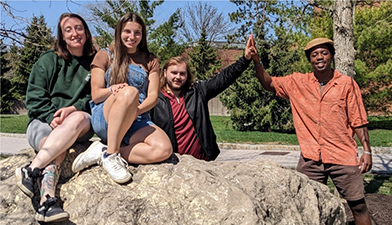
Speakers:
Paige Arieno ‘23 BS, ’24MS
Evan Batte ‘23 BS, ‘24 MS
Nikki Fuller, ’24 MS
Jayson Kucharek ‘23BS, ‘24 MS
Environmental Science
“Pairing is Sharing: Critical thinking improves when working in pairs”
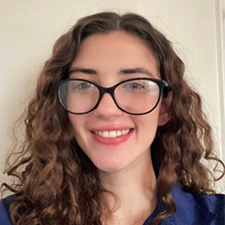
Speaker:
Sam Conflitti '23
Biotechnology and Molecular Bioscience
“Isolation, Whole-Genome Sequencing, Annotation and Characterization of Two Antibiotic-Producing and -Resistant Bacteria, Pantoea rodasii RIT 836 and Pseudomonas soli RIT 838, Collected from the Environment.”
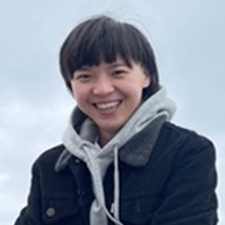
Speaker:
Serena Tuytschaevers '25
Bioinformatics and Computational Biology
"Unveiling the Signaling Pathways of Mother of Millions, an emerging Crassulacean Acid Metabolism (CAM) model”
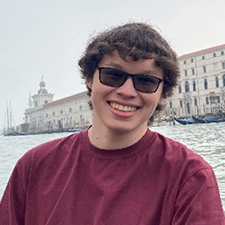
Speaker:
Shui Li Eu-Balint '24
Biology
Dr. Jacqueline Clark Ludwig, RIT: Can moth muscles make robots move? Examining metamorphosis in the tobacco hawkmoth to identify tissue engineering targets
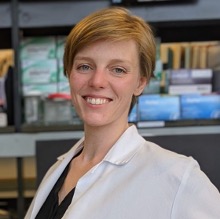
Speaker:
Dr. Jacqueline Clark Ludwig
Inclusive Excellence Program Manager
RIT
Dr. Farid Halim: Unraveling the Role of Formate Dehydrogenase in Methanogenesis: Insights into Microbial Energy Metabolism
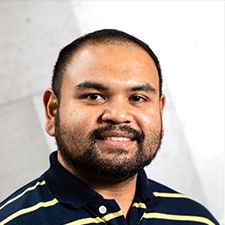
Speaker:
Dr. Farid Halim '10 (biotechnology)
Postdoctoral Research Associate
University of Minnesota
Dr. Andrew Newhouse: Using Genetic Engineering to Rescue Threatened Native Trees
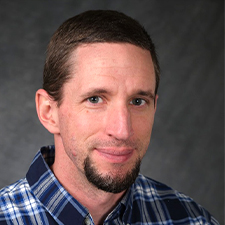
Speaker:
Dr. Andrew Newhouse
American Chestnut Research and Restoration Project
SUNY ESF
Trevor Penix: Applied Biomedical Genomics and Bioinformatics at the Genomics Research Center
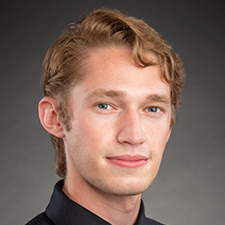
Speaker:
Trevor Penix (Biotechnology ’20)
Ph.D. Candidate
St. Jude Graduate School of Biomedical Sciences
St. Jude Children’s Research Hospital
Melissa Duhaime
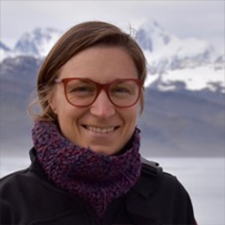
Speaker:
Melissa Duhaime
Assistant Professor
Department of Ecology and Evolutionary Biology
University of Michigan
Elizabeth Pritchett and Dr. Dalia Ghoneim: Applied Biomedical Genomics and Bioinformatics at the Genomics Research Center
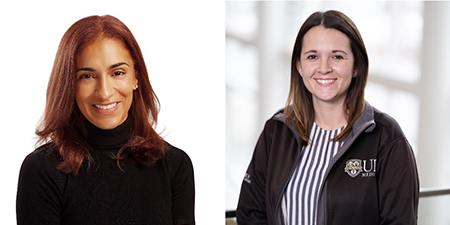
Speakers:
Elizabeth Pritchett, Operations Director
Dr. Dalia Ghoneim (bioinformatics '07)
Genomics Research Center
University of Rochester
Erik Dopman: Genetic causes and population consequences of behavioral and life history evolution
Speaker: Erik Dopman
Tufts University
Shawn Fahl: Applications of Cryopreserved Human Dissociated Tumor Cells (DTCs) for Drug and Diagnostic Development
Speaker: Shawn Fahl '05 (biotechnology)
Vice President of Lab Operations, Cell Services, and R&D, Discovery Life Sciences
Dr. Julie Thomas, RIT: Building on “déjà vu” to understand giant phage head assembly and function
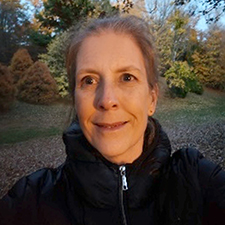
Speaker: Dr. Julie Thomas, Associate Professor
RIT Thomas H. Gosnell School of Life Sciences
Dr. Daniel Grunspan: Biases and Partnerships: Learning from Student Social Networks
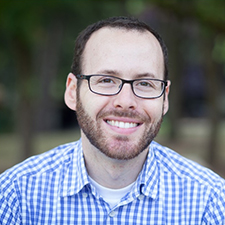
Speaker: Dr. Daniel Grunspan, Assistant Professor
Department of Integrative Biology, University of Guelph
Douglas Lyles: Trafficking of viral ribonucleoproteins in the cytoplasm of host cells
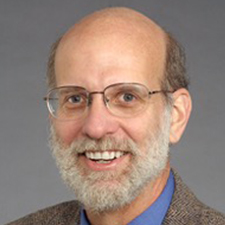
Speaker: Douglas Lyles, Professor of Biochemistry
Wake Forest School of Medicine
GSoLS Faculty Slide Slam

Speaker: GSoLS Faculty Slide Slam
Thomas H. Gosnell School of Life Sciences, RIT
Stefan Schulze, RIT: Comprehensive prokaryotic glycoproteomics: challenges, solutions, and their application to pathogenic bacteria
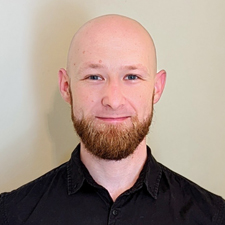
Speaker: Stefan Schulze, Assistant Professor
Thomas H. Gosnell School of Life Sciences, RIT
Dr. Girish Kumar: Impact of extraction methods, filter pore sizes, and primers on eDNA metabarcoding results
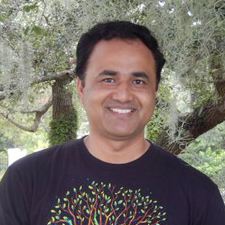
Speaker: Dr. Girish Kumar, Genomics Research Associate
Thomas H. Gosnell School of Life Sciences, RIT
Dr. Leslie Kate Wright, RIT: Representations and Visualizations in Molecular Biology
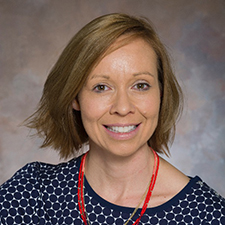
Speaker: Dr. Leslie Kate Wright
Professor and Interim Head of Thomas H. Gosnell School of Life Sciences





